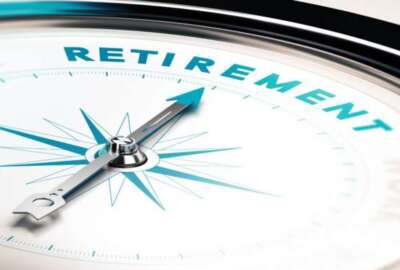CDs, the ones made of money aren’t what they used to be
The shine has dulled for CDs, or certificates of deposit, which looked like great investment vehicles when interest rates were higher.
The shine has dulled for CDs, or certificates of deposit, which looked like great investment vehicles when interest rates were higher. Just rolling them over may be such a great wealth-building strategy. Wealth adviser Thiago Glieger joined the Federal Drive with Tom Temin to share some tips for dealing with CDs.
Interview transcript:
Tom Temin: And I remember Thiago when these CDs were 12, 13, 14%. This is in my younger years when they were, wow, amazing. For a year you could make double digits on your money. More recent years, single digits, which is better than nothing. But what’s the latest you’re seeing?
Thiago Glieger: Wouldn’t have been great if you had known to buy 30-year bonds in the 80s that were paying you double digits. That would have been a smart thing if we had known hindsight’s always 2020, right? Yeah. I think.
Tom Temin: You throw in Apple and video in about €35 stocks have only we’d known I wouldn’t be sitting here doing this.
Thiago Glieger: Yeah need a crystal ball for that one. The CDs have, you’re right, they’ve been super popular because when we look at what interest rates have been, finally we have some sort of respectable interest rate. Of course this was to try and combat inflation, but as a result, investors looked to the banks and said, ‘Hey, you know what, I’ve been earning less than 1% on my cash for so long and finally, for the first time in a really long time, I get to earn 4.5, 4.75, 5, 5.25% on my money that sitting aside and putting them into a bank CD.’ And so this has been a super popular approach for federal employees and investors across the country to do something with their cash that’s very conservative. But now that we’re starting to get to the end of this higher interest rate cycle, the Federal Reserve has talked about reducing interest rates, right. And so these CDs are starting to expire and very often they renew. And usually when we get renewals, that’s when things get a little tricky. People aren’t quite getting what they thought they were earning.
Tom Temin: So therefore you should not have your CDs on auto renewal, but you should look at them and maybe what call the bank and say if I roll it over, how much now?
Thiago Glieger: That’s right. The banks are often renewing CDs automatically for you as a courtesy. They may send you a message saying, ‘Hey, look, we’re going to renew this to the new current rate and this current rate is in the fine print on page 5,000 where you need to look and see what is this current rate that they’re talking about.’ The introduction rate that you’re getting when you first buy the CD, that high interest rate, four and three quarters, 5%, that may not always be the rate that they’re renewing you at. And so what we have seen are people going in, getting these CDs renewed, possibly for another six months, for another year, and they may go as much as a whole year earning something like 1.5% instead of 5%. So what happens to that 3.5 other percent? Well, that ends up being a gift to the bank that you gave to them, Right. And so you just want to make sure you’re staying on top of this because it’s not automatic.
Tom Temin: Well, what are some alternatives to fresh CDs if the CDs are dropping, you know, 80% and what their rate of return is?
Thiago Glieger: If you can’t find a CD or you’re being auto renewed to a CD that’s going to be lower, you can also consider something a little more short term, which are the money markets. So a money market is essentially liquid daily and they can pay in some cases as much or even more than a CD. So a lot of money markets out there that are still paying 5% on an annualized basis, but you’re getting that money liquid every single day. So overnight is where you’re earning your interest. Now, this is good for you as interest rates are rising because the CD you’re going to lock in the interest rate, the money market is going to reprice every single day. This can be bad for you, however, when we have impending interest rate cuts, which is what we’re dealing with here, where the Federal Reserve is going to start to reduce rates. So it’s kind of like a variable interest rate, but you have access to the money pretty quickly.
Tom Temin: Well, what are you buying? What is the instrument? You don’t buy a money market. What is it called? What is it you’re actually purchasing?
Thiago Glieger: You can go out and look for a money market. A lot of the brokerage platforms do sell the money market. You typically don’t get these out of bank. So you have to go to an investment vehicle. But Schwab has them, Fidelity has them, all of the big platforms. And this is essentially the money that is pulling the bank reserves. And the idea is that you get to participate in some of that capital as the banks are lending to each other and you’re getting some of that interest rate overnight. So you’re providing liquidity to the markets and to the banking institutions and they’re repaying you overnight as a result.
Tom Temin: And how liquid are you when you help their liquidity? That is to say, if it suddenly starts to drop, can you get your money right out?
Thiago Glieger: Yes, that’s the benefit of these money markets, is they are liquid overnight. So every single day, you have the ability to withdraw your cash back. And there are some government money markets as well where you can invest in a money market that’s going to be providing you with those guarantees of the government.
Tom Temin: We’re speaking with Thiago Glieger, a principal with RMG Advisors of Rockville, Maryland. But is there any. Way outside of a CD of locking in higher rates these days. Is there anything you can do if you don’t have $1 billion that would be stable at a higher interest rate other than a CD?
Thiago Glieger: Yes. There’s a moment in time where the interest rate environment is going to start dropping soon. So the money markets are out because they have a adjusting interest rates. So as the interest rates go down, then so will the interest rate paid on money markets. The challenge with the CDs is that they’re also going to follow that same reduction cycle. Plus, if you’re being renewed at a lower rate, then that’s not entirely beneficial for you. The alternative people are using instead is they’re starting to look at bonds because a bond, especially if you’re using like a Treasury bond. Again, U.S. Treasury bonds are considered guaranteed by the United States government. You can look out as far as five, 10 or even, like I mentioned earlier, a 30-year bond, right. And you’re locking in the interest rate today. Whatever rates are paying today. So it’s somewhere between 4 and 5% depending on what kind of bond you’re getting, depending on what kind of risk you’re taking if you go to a corporation and get a bond from them. But the idea is, ‘OK, if I know I’m not going to need my money for the next 5 or 6 years, I know that money markets are going to start paying less. The cash that I have in the bank is not going to pay very well either. Why don’t I just buy a bond for five years and I know I can lock in a 5% return at least every single year for the next five years.’ That can be a really valuable approach for a lot of investors.
Tom Temin: Well, maybe tell us about the techniques for buying specific bonds like that as opposed to simply buying into a bond fund like the G Fund or the F Fund in the TSP.
Thiago Glieger: Yeah, the challenge with buying a fund of bonds is that you don’t really have control over what’s happening to those bonds. There’s a manager behind it that’s saying, ‘OK, we need to buy or redeem different bonds because there’s a pool of investors asking for their money or putting more money in.’ So this constant revolving door of trades in a bond fund is going to mean that you’re not really getting the interest rate that a specific bond is offering versus if you go out and you purchase the bond directly in a brokerage account or something like that, you can hold that individual bond all the way through its maturity, which means as long as that bond doesn’t default, you’re going to get that interest payment will be at 5%, 6%, and you can count on that income to be coming in. So this is nice for retirees. And also, if you want to be specific about taxation as well because as we know, the income on bonds or CDs is considered taxable income.
Tom Temin: Well then how do you ascertain if it’s not a government bond or even a state bond that the bond will be in fact paid back by whoever issued it? Say it’s a construction bond or someone’s going to build malls or amusement parks. You have to know that bond is, say, not subordinated to whatever their supplier costs might be, for example.
Thiago Glieger: That’s right. And that’s a really important part of doing the due diligence, just as you would do the research on a mutual fund or an ETF that invests in stocks, what kinds of stocks and companies are being invested. You want to do the same when you’re looking at bonds. People think of bonds as a low-risk investment and that may not necessarily be the case. You really have to look at the credit worthiness of the organization from whom you are buying the bond, Right.
Tom Temin: So if something like a Boeing, which is having travails now topically issued bonds, probably those would be a good investment for the long term. But if something a little shakier, a little less of a balance sheet issues a bond, then you should know that also.
Thiago Glieger: That’s right. And the way to understand some degree of risk is how much are they paying you? The issuer is going to know that they have to pay you a higher interest rate for you to take a higher degree of risk. So if they have a rocky balance sheet or they’re not doing so well financially and you’re looking at a spread of different bonds and you see bonds that are paying 6.5, 7%, 7.5%, that should be a red flag. Why are they paying you so much relative to what the government is paying, which is 4.5% these days? And understanding what kind of risk am I taking for that higher level of interest?
Tom Temin: Yeah, like a Disney project in China. We’ve seen some of these things over the years not do so well even with blue chip companies investing in them. All right. And then whatever happened to GICs? Guaranteed Investment, whatever they were, I forget what the C was. Contract.
Thiago Glieger: Yeah, they are still out there. They’re not as popular as some of these other options where people are creating something like a bond ladder or just utilizing a lot of municipal bonds for their tax-free benefit. But I’ll tell you, a lot of GIC uses are not really done by individual investors because most of them just they don’t really understand the investment product, right. There’s a lot of GOs or general obligation bonds as well, right. Some of these are more specific bond instruments that we often see professionals using, not necessarily individuals.
Tom Temin: And finally, if you go to a broker for bonds, is that a different skill set than a stockbroker?
Thiago Glieger: I would definitely say so because in the bond markets, there are different mechanisms involved when buying and selling a bond. And this is where you also want to be careful and understand is the broker actually charging you some sort of spread between the bond. Just like a commission could be charged on a stock purchase, there could be a spread between the price of the bond and what you’re actually getting at. This is also important that you work with a fiduciary because they’re going to help you find the brokers or getting you the transactions that are going to be for your best interest.
Copyright © 2025 Federal News Network. All rights reserved. This website is not intended for users located within the European Economic Area.
Tom Temin is host of the Federal Drive and has been providing insight on federal technology and management issues for more than 30 years.
Follow @tteminWFED






